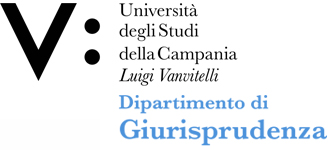Giuseppina Maria OLIVIERO NIGLIO
Insegnamento di DIRITTO PRIVATO ROMANO
Corso di laurea in SCIENZE DEI SERVIZI GIURIDICI
SSD: IUS/18
CFU: 12,00
ORE PER UNITÀ DIDATTICA: 72,00
Periodo di Erogazione: Primo Semestre
Italiano
| Lingua di insegnamento | Italiano |
| Contenuti | Il diritto privato dell'antica Roma dalle origini a Giustiniano. |
| Testi di riferimento | PER L'INSEGNAMENTO FONDAMENTALE (12 CFU) |
| Obiettivi formativi | PER L'INSEGNAMENTO FONDAMENTALE (12 CFU) |
| Prerequisiti | PER L'INSEGNAMENTO FONDAMENTALE (12 CFU) |
| Metodologie didattiche | Lezioni frontali e seminari dedicati a specifici argomenti del programma. |
| Metodi di valutazione | PER L'INSEGNAMENTO FONDAMENTALE (12 CFU) |
| Altre informazioni | Durante il corso sarà fornito agli studenti ulteriore materiale didattico. |
| Programma del corso | PER L'INSEGNAMENTO FONDAMENTALE (12 CFU) |
English
| Teaching language | Italian |
| Contents | The private law of ancient Rome from its origins to Justinian |
| Textbook and course materials | FOR FUNDAMENTAL TEACHING (12 CFU) |
| Course objectives | FOR FUNDAMENTAL TEACHING (12 CFU) |
| Prerequisites | FOR FUNDAMENTAL TEACHING (12 CFU) |
| Teaching methods | Lectures and seminars dedicated to specific topics of the program. |
| Evaluation methods | FOR FUNDAMENTAL TEACHING (16 CFU) |
| Other information | During the course, students will be provided with additional teaching material. |
| Course Syllabus | FOR FUNDAMENTAL TEACHING (12 CFU) |








